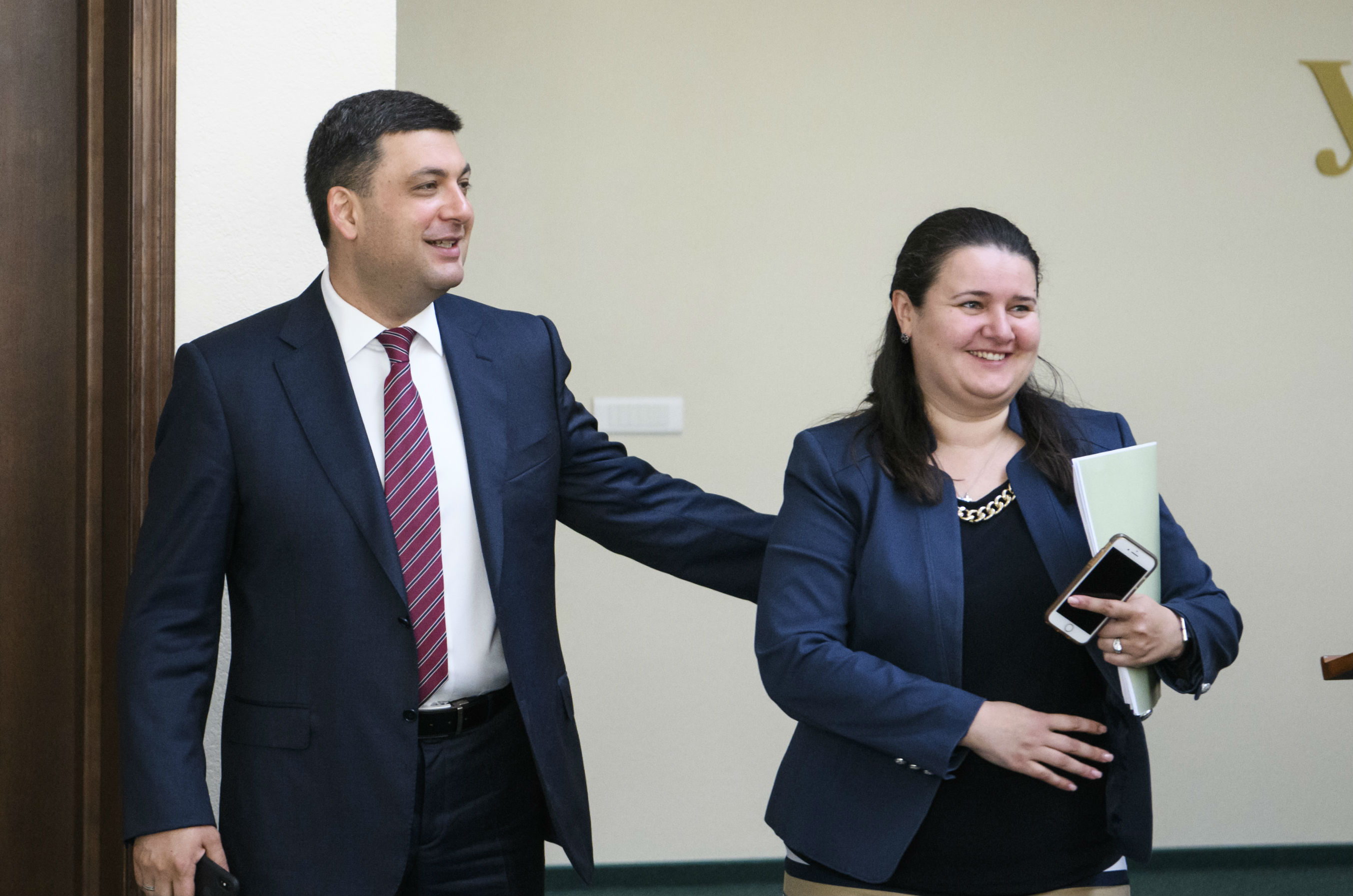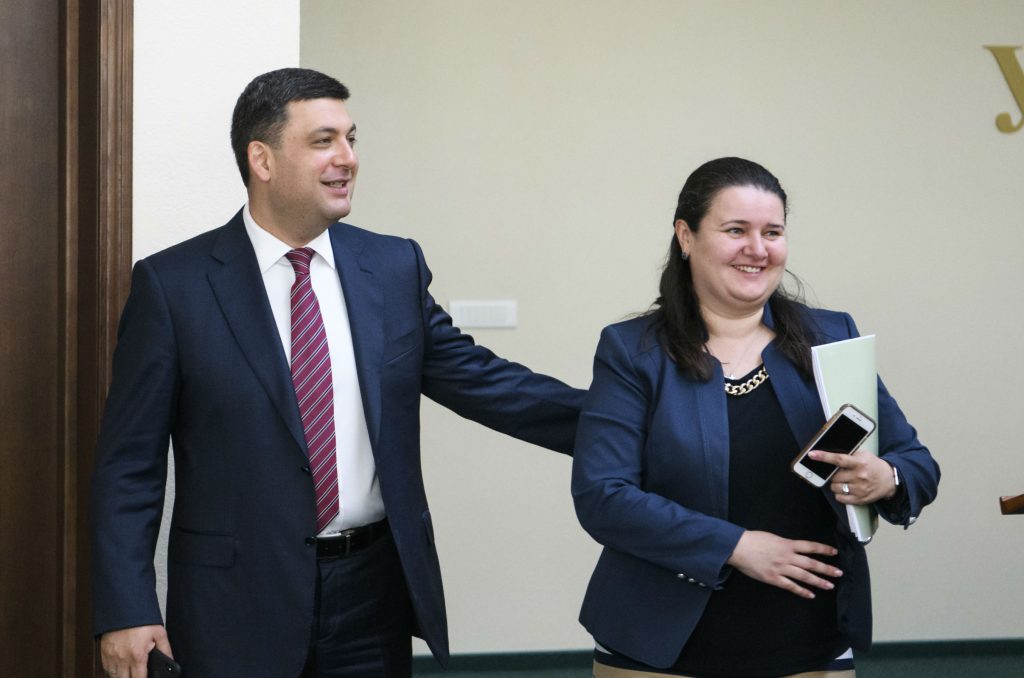 Ukraine’s Finance Ministry doesn’t get enough credit. For four years it has been key to avoiding the worst of the economic downturn and attaining macroeconomic stability as the country continues to respond to Russian aggression.
Ukraine’s Finance Ministry doesn’t get enough credit. For four years it has been key to avoiding the worst of the economic downturn and attaining macroeconomic stability as the country continues to respond to Russian aggression.
The Finance Ministry is in the spotlight again. Ukraine’s got massive debt that comes due in 2018-2019, and it’s still unclear if the country will receive the next $2 billion infusion of credits from the International Monetary Fund after foot dragging on anticorruption reforms. According to the World Bank, Ukraine needs to borrow the equivalent of 7.3 percent of GDP per year, including about $8 billion internationally, to finance debt payments and the deficit in 2018-2019.
On June 7, parliament approved a long-delayed bill on the anticorruption court, which was a key condition of the IMF. That same day, parliament also sacked reform-minded Finance Minister Oleksandr Danylyuk.
Ukraine’s new finance minister is not new. Oksana Markarova, the acting minister, has been part of the Finance Ministry since March 2015. She is expected to stick to the script of fiscal prudence and reforms outlined by her predecessors. Indeed, her announced priorities for the ministry suggest that she intends to build on existing policies and the IMF-prescribed reforms focusing on fiscal consolidation, preserving macroeconomic stability, and supporting economic growth.
Western-educated and experienced, Markarova has a lot on her plate. First and foremost, people will be watching her progress on IMF negotiations.
Vladislav Rashkovan, former deputy governor of Ukraine’s Central Bank, who currently serves at the IMF, told me Markarova has plenty of experience working with the IMF and that the fund “highly appreciates her experience, engagement, and strong negotiation position.”
Markarova came to the government from the private sector, where she led the investment firm ITT Investment Group for twelve years and worked at Western NIS Enterprise Fund, an investment fund financed by the US government through the United States Agency for International Development. Her private sector and government experience will help her mobilize international finance for the country, observers believe.
“I think the financial markets and expert community welcome her appointment. She is known for having all the necessary qualifications to get the job done,” said Aivaras Abromavicius, the former Minister of Economic Development and Trade.
One major issue that her predecessor tried to deal with has not gone away. Former Finance Minister Danylyuk had warned that the ministry’s authority over Ukraine’s revenue collecting agency, the State Fiscal Service, was threatened, and that he faced increased political pressure to deliver politically-motivated handouts from the budget.
Markarova said that the State Fiscal Service has been under the Ministry of Finance since 2015 and that will not change. “The prime minister fully supports this position,” she said.
But transparency in the State Fiscal Service will be closely watched by the business community. Previously treated as a “cash cow” for the corrupt elite, the State Fiscal Service underwent reform in 2015 that sought to reverse the situation. Lowering corruption through the introduction of electronic systems to manage the value added tax and customs clearance procedures have been among the most praised reforms by the business community so far. Launching the electronic registry of applications for VAT refunds in April 2017 came as “a relief for companies that have longed for a transparent VAT refund system for many years,” said Tetyana Prokopchuk, vice president of the American Chamber in Ukraine. Prokopchuk added that she hopes such transparency reforms as the electronic corporate tax filing system and a “single window” system at customs will also go forward.
Markarova enjoys the support of her predecessors. “I am certain she will do everything within her abilities to ensure prudent fiscal policy and full cooperation with the IMF and other international financial institutions whose financial support is critical to medium-term economic stability and growth,” former Finance Minister Natalie Jaresko said of Markarova. Jaresko, who has known Markarova for twenty years, says she is confident “in [Markarova’s] ability to lead the Ministry of Finance, despite the budgetary challenges and the long dry period without IMF support.”
The pressure on the Finance Ministry is likely to escalate as the country enters the pre-election period and will require resolve and relentlessness from its new leader. Markarova knows the challenges she faces.
“The minister is the keeper of that balance, whether it is a pre-election year or not,” she said.
Oksana Bedratenko is an independent analyst based in Washington, DC; she formerly served as the Senior Local Economist at the US Embassy in Kyiv. She tweets @Bedratenko.
Image: Ukraine Prime Minister Volodymyr Groisman presents Acting Minister of Finance Oksana Markarova to the staff of the Ministry of Finance on June 8 in Kyiv, Ukraine. Credit: Cabinet of Ministers/Creative Commons
